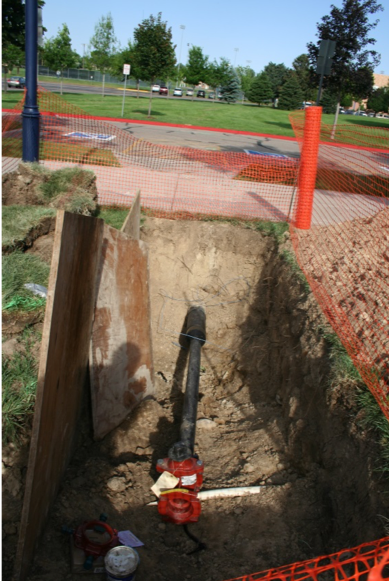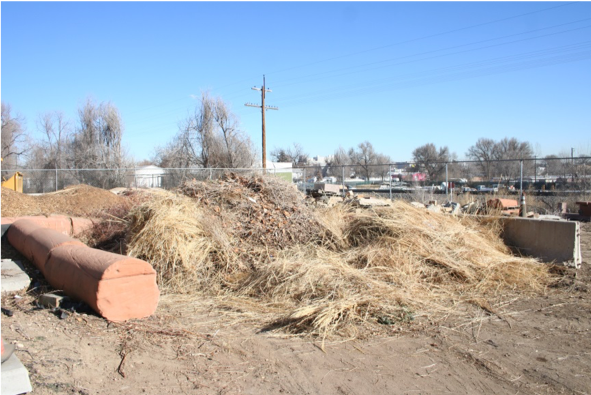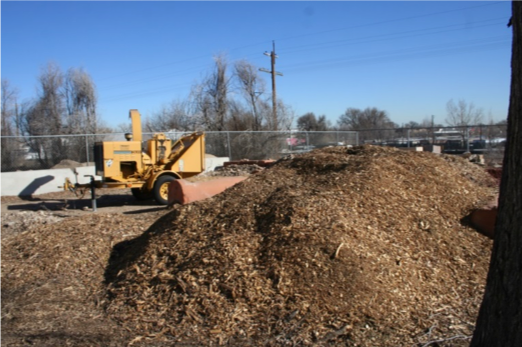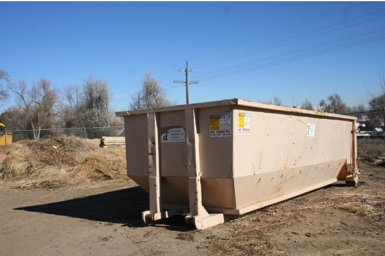Sustainable Water
UNC is fortunate to own water rights, and utilizes raw water from the mountains to irrigate sports fields and most of the turf on the west campus. It conserves millions of gallons of valuable drinking water and saves the university thousands of dollars each year.
Non-Potable System
We have expanded our Non-Potable system over the past years from 63.63 acres in 2011 to 65.14 acres by 2013. In 2018 we added another 12.6 acres for a total of 77.74. The cost savings is substantial verses paying the City of Greeley for treated potable water to irrigate our landscape. It also allows more potable water to be available to a growing community. See map provided of recent expansion of our Non Potable system.

Xeriscaping
The landscape Masterplan includes a directive requiring a minimum of 20% of new landscape installations be xeric in nature.
The 4-acre Xeric Demonstration Garden that was developed and completed in 2006 emphasizes the selection of native and low water-use plants and the use of drip irrigation systems, which contribute to the primary goal of water conservation.
The most recent landscape of the Campus Commons Building consists of hundreds of additional square footage that is designated as Xeric in nature.
Yardwaste Recycling
In 2008, arrangements were made to divert the university’s yard-waste. Yard waste includes trees and shrub prunings, sod, leaf debris, grass trimmings, tree debris, etc. Yard waste is collected in a 30 cuyd. roll off dumpster and is delivered to A-1 organics for the conversion of yard-waste into recyclable products such as compost, mulch and other organic products.
Since 2008, the University has diverted over 4000 cuyds of material. In exchange for these raw materials, the university is provided with compost and mulch supplies at a discounted price. The university also utilizes shredded/chipped mulch generated from tree contractors and the university-owned tree chippers in the campus landscape.
Bottle Fillers
UNC is in the process of changing campus drinking fountains to accommodate bottle fillers. These fillers have built-in bottle counters so that you can see how many bottles have been saved from landfills the next time you pass one in your building.
Water used to cool high-temperature, hot water (HTHW) pumps
The water that cools the HTHW pumps is reused as condensed water. Previously, it was cooled by a pass of water, which then went down the drain. Now, it’s piped into a cold-water tank and reused.
Automatic Flush Valves
By replacing all 250 1-gallon-per-flush valves to 1-pint-per-flush valves, these automatic urinal flush valves save 20,350 gallons of water per day—a $109.28 per day savings. With a generous rebate from the city of Greeley, the valves paid for themselves in just under three months.
Low Consumption Toilets
UNC has replaced all the old style high consumption toilets with 1.6 GPF design. The toilet replacements were part of a campus wide performance contract in 2004 and a grant project through the city of Greeley in 2009.
Low Flow Showerheads and faucet aerators
All showerheads on campus are 2.5 gallon per minute. This saves not only water but also natural gas that heats the water. All aerators on campus are .5 gallon per minute. This also saves water and natural gas.




